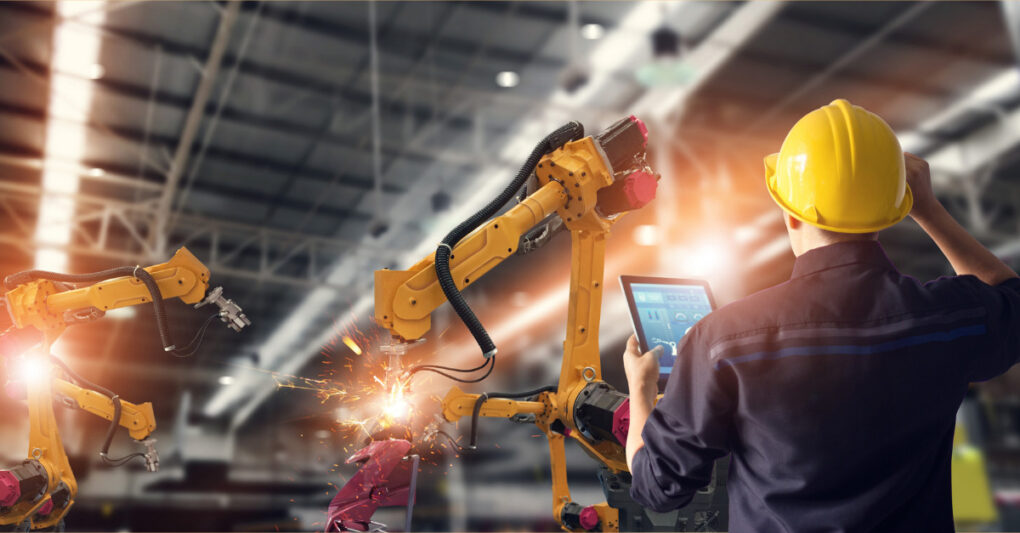While the health crisis has revealed the limits of the traditional supply chain model, it has also encouraged the acceleration of digital transformation and process automation in many sectors. Here we take a look at the challenges and benefits of industrial automation, at the heart of tomorrow's industry.
What is industrial automation?
Industrial automation refers to the use of new technologies without human intervention in the production chain. In other words, it is the use of machines, technology and digital tools to optimise industrial processes. Here are a number of examples of methods and tools used in industrial automation:- AI (artificial intelligence)
- RPA (robotic process automation)
- 2D or 3D vision
- Automatic data analysis
- Production robotisation
- Automatons
- Measurement sensors
- Communication buses.
What are the challenges of automation in industry?
Industrial automation responds to multiple economic, social, health and environmental challenges. The following tangible benefits can be linked to automation in industry:- Acceleration and optimisation of the manufacturing cycle
- Increase in production rates
- Enhanced productivity, autonomy and performance
- Greater precision and guaranteed end quality
- Reduced costs and rapid return on investment
- Increased flexibility
- Adaptability and resilience to external hazards and crisis management
- Increased competitiveness
- Strict compliance with quality standards and norms
- Reduced risk of errors
- Improved waste management and reduced waste
- Optimisation of inventories
- Decreased occupational risks
- Improved working conditions
- Savings in human and energy resources
- Reduction in production times.







